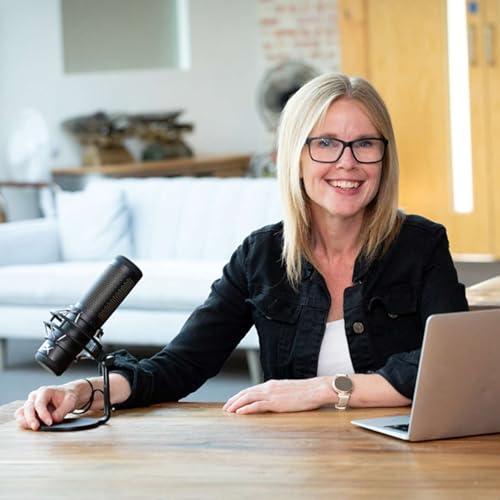
In conversation with Ndindi Kitonga - part 2
No se pudo agregar al carrito
Add to Cart failed.
Error al Agregar a Lista de Deseos.
Error al eliminar de la lista de deseos.
Error al añadir a tu biblioteca
Error al seguir el podcast
Error al dejar de seguir el podcast
-
Narrado por:
-
De:
This series critically explores adversity and trauma, what it is and how it plays out in an educational context. In this 2nd episode with Ndindi, we discuss policy and practice with a focus on becoming trauma-informed.
Ndindi and I begin the show by discussing the 6 principles of trauma. Ndindi questions how these principles can be measured and I respond by explaining how they're not a treatment plan and thus won't be measured in a scientific way. The principles are designed to guide us through breaking down the barriers of trauma so that people can feel safe and supported.
Can we philosophise the human experience when the principles have been implemented? Could this be a way to measure them and what would the quality of outcome look like? These are some of the questions I present to Ndindi. Ndindi then follows on from this with how it is important to implement empathy and compassion in the classroom when working through the principles to understand what each of them are and provides us with examples.
09.35: I discuss the lack of training around becoming trauma-informed and ask how can we empower ourselves and others, or overcome challenges with collaboration when the policy itself is unclear. For me personally, I talk about my experience in the classroom and how I validate the learners' experience so that we build trusting relationships. The teacher/learner relationship is an important one for those tools of empowerment to be developed.
12.02: Ndindi agrees with this, discussing how responsibility for those who are 'too troubled right now' is shifted from the teacher to pastoral care. This makes the classroom look more coherent rather than working through concerns and enabling all learners to feel like they belong in the same space. Ndindi continues to say, though there is outside support which is good, the learner is not an after thought and there is evidence to support this.
16.04: I talk about the limitations of policy and practice in relation to an educators' role, having a duty of care and developing a learner holistically. Having outside resources may benefit some but we need to remember that learners' especially teenagers, can feel judged. If they're on the outside they may find it more difficult to communicate and until we address certain conversations, learners are not finding commonality to build community in the classroom.
Ndindi talks about the industrial complexities giving individuals' support and how individual therapies can be found though this isn't always beneficial holistically in the social context. Tools for post education need to be developed and sometimes this can be restricted when for example, financial assistant is allocated like a lottery and it's not clear where this money goes. Ndindi discusses the reproduction at play with learners' being pulled from class and the need for the development of social intelligence.
21.00: I then touch on the reproduction of social inequalities by talking about my PhD and subsequent book 'state schooling and the reproduction of social inequalities and how this relates to our discussion today around how individual agency can be reduced, leaving an individual hidden in the background.
Conversations about policy, particularly when thinking about how to foster relationship building, is a way to address trauma for young people in schools and of course others in any educational context.



